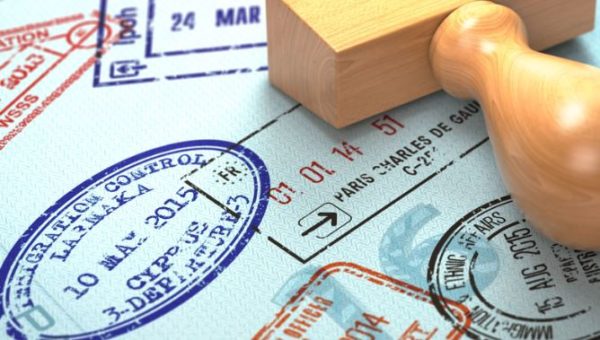Lifestyle
10 fast facts you need to know about visa applications

As a South African passport holder, you can travel visa-free to 106 countries, including Ireland, Réunion, Mauritius, Russia, Brazil and many African countries, such as Namibia, Zambia, Zimbabwe and Malawi.
If you plan on going to the UK, US, Australia or anywhere in the European Union, then the rules start to change, and you’re required to obtain a visa.
Flight Centre South Africa’s Customer Experience Team Leader, Lynette Machiri, answered the 10 most frequently asked questions about travelling to a region with visa requirements.
1. How do I know if I need a visa?
According to Machiri, there are various ways to determine if you’ll need a visa ahead of a trip, and the best way is to visit the embassy website of the country in question.
Alternatively, the quickest and most convenient way to save yourself the trouble of uncovering this information is by booking your holiday through a travel agency, as travel agents are up to date with the necessary visa requirements.
2. Where can I apply for a visa?
The embassy’s website, official government website or a trusted travel agency will supply you with up-to-date information on where and how to apply for a visa. In most cases, there will be an embassy and/or consulate for your destination country located in South Africa’s major cities (specifically Cape Town, Johannesburg and Durban).
Machiri also said that you may need to travel to another city for a visa appointment if there is no Embassy or visa processing centre in your area.
3. Can I apply for a visa online or do I have to visit the embassy?
“Some embassies allow you to complete and submit your visa application form online. However, you’ll usually have to visit a consulate or visa processing centre in person for your visa interview and/or to capture your biometric data. Certain countries, for example, Mozambique, have online eVisa portals, where everything is processed electronically, but the visa is paid for on arrival in the country,” said Machiri.
4. I’m a dual passport holder – which passport do I travel on?
It’s vital to travel with both valid passports on you. “Since many non-South African passports offer more visa-free travel options for travellers, it’s usually best to exit South Africa and enter your destination country using your non-South African passport. However, you’ll need to show your South African passport to clear customs when returning home,” Machiri advised.
5. What documents do I need to bring with me to apply for a visa?
Machiri said the documents required for a visa application vary according to your destination. Therefore it’s important to check the information provided by the embassy or visa processing centre ahead of your appointment.
You might require the following:
Your passport, a completed and signed visa application form, passport photos that meet the destination country’s requirements and information regarding travel purpose, i.e., holiday, work, study, etc.
6. How long does it take to get a visa?
Most visa applications are processed within 15 – 30 days. However, processing times may be longer if applying during peak periods. It’s always best practice to apply for your visa at least six weeks in advance to account for any delays.
“It is important to check visa application time-frames with the embassy or visa processing centre for the country you plan to visit, as they will provide guidance on when you should apply for your visa,” said Machiri.
7. How much does a visa cost?
The cost differs based on your destination country, but you’re generally looking at an application fee between R1,500 and R3,000.
Here’s a brief overview of what to expect:
- Schengen visa: €80 (equivalent to R1,695)*
- UK visa: £104 (equivalent to R2,533)*
- US visa: $160 (equivalent to R3,164)*
- Australian visa: AUD150 (equivalent to R1,930)*
8. For how long is a visa valid?
Short-stay tourist visas are usually valid for three to six months. Some are single-entry visas, whereas others allow for multiple entries during that period, such as the UK short-term visitor visa.
9. What should I do if my visa application is rejected?
In the event of a visa refusal, most embassies will provide contact details that you can use if you’d like to dispute the decision. The embassy will also usually supply a reason for the rejection. Common reasons for visa refusal include, an incomplete application form, missing travel documents, incomplete travel details, passport issues, criminal history and unclear travel purpose.
10. Will my application fee be refunded if my visa is refused?
No. The visa application fee is non-refundable. However, you may be covered for visa refusal if you have invested in travel insurance. Check your policy details for terms and conditions in this regard.







